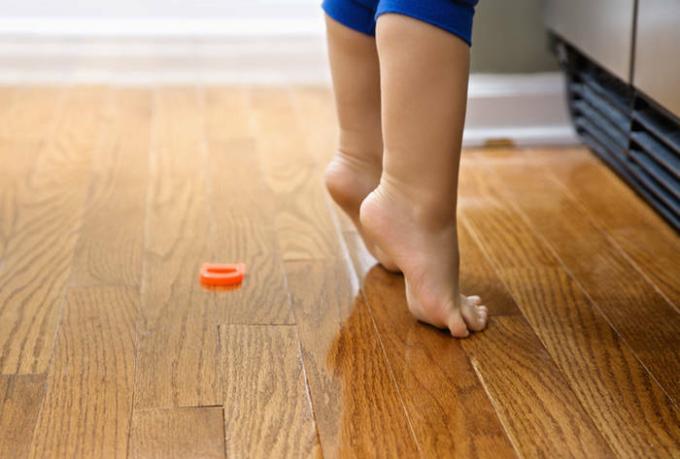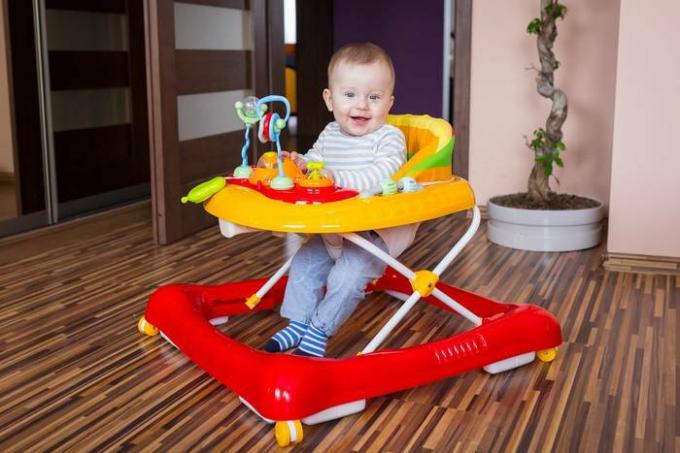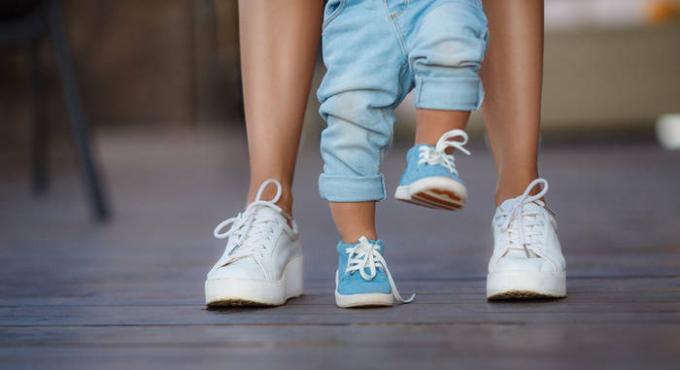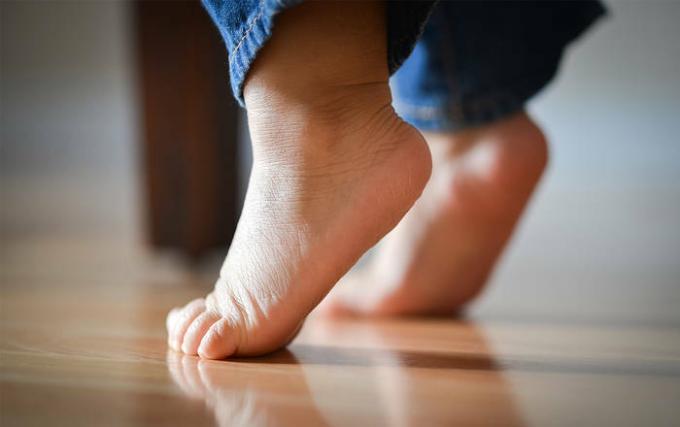Why does the baby constantly or periodically walk on tiptoes? In what situations, walking on tiptoes can be a sign of illness. When and to which doctor you need to show your child
Your baby has finally made his first steps and is now moving around the house with great curiosity and irrepressible energy. However, anxiety is mingled with parental joy: often mothers notice that the child rises on tiptoe when walking. This can be an age-related deviation that goes away on its own by 2-3 years. But in the same way, walking on toes can indicate the presence of congenital diseases and developmental disorders in a child. When to sound the alarm and see a doctor, a pediatric neurologist told us Alexander Miroshnikov
When Toe Walking Is Not Dangerous For Your Baby

Kids can tiptoe to make them look taller / istockphoto.com
In general, walking on toes is not a physiological norm for a child. The correct positioning of the legs when the baby moves is the same as that of an adult - this is walking with a roll from heel to toe. However, many children, having just learned to walk, choose a different method of movement for themselves: they begin to step on their toes or the balls of their feet.
This is not always a cause for concern for parents. Doctors identify such a condition as idiopathic toe walking (IHN). It is also called benign due to the fact that it is not the result of any serious developmental disorders. Typically, this idiopathic walking occurs in the first two years of life and can occur for both medical and non-medical reasons.
Causes of CHI in a child

Walkers are very common cause of toe walking / istockphoto.com
Quite often, toe walking is just the result of a child's active development. The kid is interested in everything around him: rising on tiptoes, he tries to become taller and at the same time to experience the capabilities of his own body. It happens that in this way the child copies his mother, who walks in heels. In such cases, CHI does not appear constantly, but occasionally.
In addition, walking on tiptoes is characteristic of hyperactive and excitable children: they rise on their toes in moments of emotional excitement, as if trying to get physical relaxation. Likewise, and vice versa: an overly shy and anxious child may well tiptoe during moments of nervous tension.
Another factor that provokes CHI in a healthy child is a walker. Usually children are placed inthis dangerous machine too early, when the arch of the foot is not yet well formed for walking. As a result, the muscles of the legs are toned. This tone is manifested by lifting on toes. As a rule, after getting rid of the walker, walking returns to the physiological norm in a few months.
The medical cause of CHI in children may be muscular dystonia (alternation of hypotension and hypertonicity) or congenital hypertonicity of the leg muscles not associated with a walker. In this case, walking on tiptoes is not periodic, but constant. It's too early to talk about any serious danger here: in 80% of cases, by the age of two, the muscular apparatus returns to normal on its own, and the child's gait is getting better. However, it is better to show the baby to the doctor in order to exclude serious diseases of the nervous system.
Should idiopathic toe-walking be treated?

Benign toe walking is treated with active movement / istockphoto.com
If your baby moves on tiptoe from time to time, or almost constantly, but at the same time is quite capable of walking as usual (not experiences difficulties in the correct positioning of the foot, does not strain and does not bend the legs when trying to put it straight), do not worry about how. All you need now is comfortable and flexible shoes (be sure to choose the size of the baby) and as much movement as possible. For idiopathic toe-walking, the following are helpful:
- ascents and descents barefoot on the rungs
- walking on a flat incline
- walking barefoot on the ground, grass, sand
- exercises for gripping small objects with your toes
- jumping and running
- swimming
- soft stretch marks
Be sure to monitor the condition of the baby's feet and observe for coordination of movements. Do not force or force the child to walk “like a human being”: he will start doing it himself and much faster if you do not focus on his walking.
When walking on tiptoes can be a sign of illness

Sometimes walking on tiptoes can indicate problems / istockphoto.com
If the child is two years old, and he continues to walk steadily on tiptoe, this is a reason to show him to the doctor, even when nothing else bothers you. You can go to an orthopedist or a neurologist, or it is better to visit two specialists at once. To confirm the diagnosis of CI and rule out other causes of tiptoe walking, doctors will prescribe you a screening for developmental disorders (ASD, ADHD) and analysis for the CPK level (used to diagnose damage myocardium).
At an earlier age, it is necessary to go to the doctor if walking on tiptoes is accompanied by other suspicious symptoms. For example, the baby's leg muscles are constantly tense, the Achilles (or heel) tendons are atypically stiff, there is a lack of coordination of movements, there is a delay in motor or speech skills. This could indicate that there is a serious problem with tiptoe walking.
Cerebral palsy. With a mild form of cerebral palsy, children can walk on tiptoe due to the high tone of the calf muscles. Spasmodic muscles contract and "pull" the foot in the heel up
Muscular dystrophies. These are serious genetic diseases in which weakness in the limbs gradually develops. In addition to walking on toes, a waddling gait is characteristic, a symptom of Govers (in order to rise from a squatting position, the child rests his hands on floor, then rises, resting his hands on his knees, as if “climbing on his own”), pseudohypertrophy of the gastrocnemius muscles (muscles look like "Pumped up").
Congenital or acquired encephalopathy (a brain disease caused by tissue damage and nerve cell death).
Autism spectrum disorders. In the case of ASD, tiptoe walking may be caused by problems with the vestibular system, visual control of movements, and other sensory impairments.
In children with ASD, walking on toes can be provoked by other, seemingly unrelated reasons:
- frequent regular constipation
- magnesium or zinc deficiency
- vitamin B1 deficiency
- food intolerances (milk or gluten)
- visual impairment
If you suspect that the baby has one of the above, you should consult a doctor without waiting for the HI to pass by itself.
You will also be interested to read:
The kid learns to walk: the main mistakes of parents
Flat feet in children: how to cope with an insidious ailment

